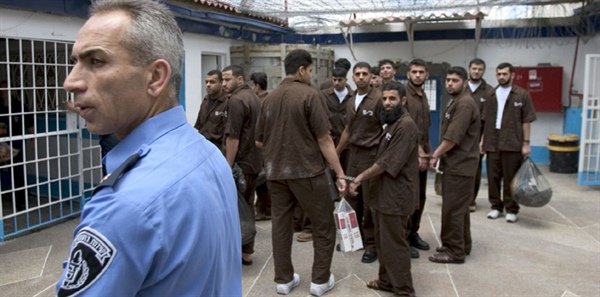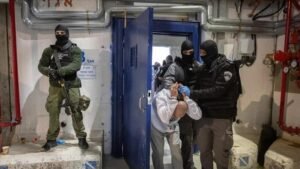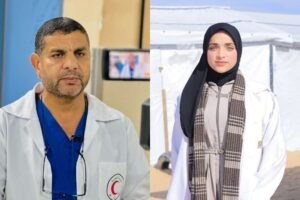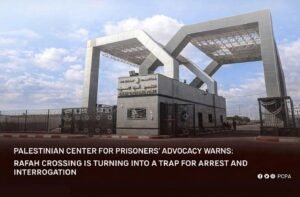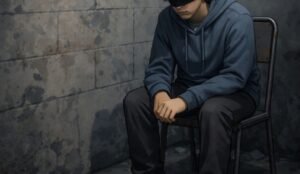Thousands of Palestinian prisoners in Israeli occupation prisons are subjected to a comprehensive system of violations and crimes, systematically and institutionally committed by the occupying authorities, far removed from any adherence to international humanitarian law or international standards for the treatment of prisoners.
These violations have escalated since October 7, 2023, reaching unprecedented levels of brutality and deprivation of basic rights, creating a scenario characterized by collective punishment, humiliation, medical neglect, torture, deprivation, and enforced disappearance.
Here are the most prominent documented violations:
First: Systematic Physical and Psychological Torture
Israeli security agencies, led by the “Shabak,” employ various forms of internationally prohibited torture during and after interrogation, affecting all categories: men, women, and children.
Physical torture:
- Severe beating and restraint in painful positions (such as the “shabah” position)
- Sleep deprivation
- Threats of rape or targeting family members
- Violent shaking, suffocation, and sometimes electric shocks
Psychological torture:
- Prolonged isolation
- Threats of death or field execution
- Denial of legal representation during interrogation
- Verbal abuse and leading towards mental breakdown
Human rights organizations, both local and international, have documented shocking testimonies from former prisoners, particularly from Gaza, confirming that torture is a routine interrogation method with no exceptions.
Second: Medical Neglect and Slow Killing
The medical policy within Israeli prisons represents one of the most dangerous forms of systematic abuse, as prisoners are denied proper medical care, and their serious illnesses are treated with severe negligence, often leading to death.
- No permanent specialized doctors in prisons
- Painkillers are provided as the sole treatment for all cases
- Denial of necessary medical tests or transfer to outside hospitals
- Refusal of treatment for chronic diseases such as cancer, heart conditions, and kidney failure
In the last two years, dozens of prisoners have died due to medical neglect, including 17-year-old Walid Dawoud Ahmed, who died in Megiddo prison after being denied food and medical care.
Third: Solitary Confinement and Dehumanization
The Israeli prison authorities employ the long-term solitary confinement policy against dozens of Palestinian prisoners, often for retaliatory or political reasons, in conditions that lack the minimum standards of humanity.
- The isolated prisoner spends 22-24 hours a day in a closed cell.
- They are denied visits, correspondence, and participation in group activities.
- Prolonged isolation causes severe physical and psychological damage, including depression and loss of time perception.
This measure constitutes a silent and compounded form of torture, and international organizations have called for its immediate cessation, as it blatantly violates the “Nelson Mandela Rules” for the treatment of prisoners.
Fourth: Denial of Visits and Isolation from the Outside World
For years, the occupation authorities have practiced a policy of systematic denial of family visits, especially for prisoners from Gaza and other security-designated areas.
- After October 7, 2023, all visits were completely halted, including Red Cross visits.
- Children are prevented from visiting their parents in prison.
- Prisoners are denied telephone calls to their families.
- Books, clothes, and basic necessities are banned from being brought in.
This complete isolation has enhanced the features of enforced disappearance, particularly with the interruption of information about thousands of prisoners from Gaza.
Fifth: Administrative Detention Without Charges or Trial
Administrative detention is one of the main tools used by the occupation to target activists and community leaders, without clear charges or trials, based on a “secret file” that neither the detainee nor their lawyer has access to.
- Administrative detention is renewed for years without a time limit.
- It is used as a weapon to terrorize families.
- As of May 2025, there are more than 3,500 administrative detainees, including children and women.
This form of detention violates all international justice standards and constitutes a crime under the Fourth Geneva Convention and the International Covenant on Civil and Political Rights.
Sixth: Sexual Violations and Harassment During Interrogation
Human rights organizations have received documented testimonies about the sexual harassment and threats of rape faced by prisoners, especially women and girls, during interrogation, in flagrant violation of basic human rights.
Violations include:
- Degrading strip searches
- Groping of sensitive body parts
- Sexual slurs and threats of rape or harm to family members
These crimes are among the most serious violations of physical and psychological dignity and fall under international law as crimes against humanity.
Seventh: Confiscation of Property and Collective Punishments
The Israeli authorities practice retaliatory policies against prisoners and their families through:
- Demolishing the homes of prisoners in the West Bank
- Confiscating prisoners’ money and “salaries” from banks
- Using family members as hostages or leverage
- Preventing freed prisoners from traveling, studying, or working
Eighth: Enforced Disappearance and Secret Detention Camps
Since the beginning of the genocide war on Gaza, thousands of detainees from Gaza have disappeared in secret military camps, such as:
- Sdeh Teyman
- Anatot
- Rakefet
- Ofer Military Camp
- Minsheh
These prisoners are deprived of basic rights, their names or detention conditions are not disclosed, and they are treated as “numbers,” confirming that they are victims of enforced disappearance, which is prohibited under international law.
Recommendations from the Palestinian Center for Prisoners Advocacy
The conditions faced by Palestinian prisoners in Israeli occupation prisons represent a comprehensive system of serious violations that amount to war crimes and crimes against humanity under the Rome Statute.
Thus, the Palestinian Center for Prisoners Advocacy calls for:
- Internationalizing the prisoners’ issue and opening their file before the International Criminal Court.
- Pressuring to allow human rights institutions and international bodies to visit all detention centers, especially the secret detention camps.
- Forming a permanent UN committee to monitor violations inside Israeli prisons.
- Activating international sanctions and accountability against the occupation’s leaders and those responsible for running the detention centers.

